What does local even mean?
Local. Organic. Sustainable. Fair trade. Vegan. Genetically-modified. Free-range. MSC-certified. And the list goes on! As soon as we walk into the grocery store, we are hit with a plethora of food labels claiming to be good for you, but what dictates your decision when buying these items?
Often times, we don't even know the meaning behind the labels, but sometimes we are even willing to purchase something that is "local" or "organic" because it illustrates how it can be better for you or the environment.
So how can something that is a part of our daily routine be so complex?
The Sustainability Office had the pleasure of taking a tour of St. Jerome's University's (SJU) food operations with Dana Hospitality on the UWaterloo campus to see how it addresses the meaning behind local and sustainable food.
SJU's unique approach to local food
The location
How local is local? For some, it means within a 50 mile radius of your location and for others it means that the food comes from within your Region. For St. Jerome's it means anywhere in Ontario, but more importantly it connects their consumers with the producers of their food.
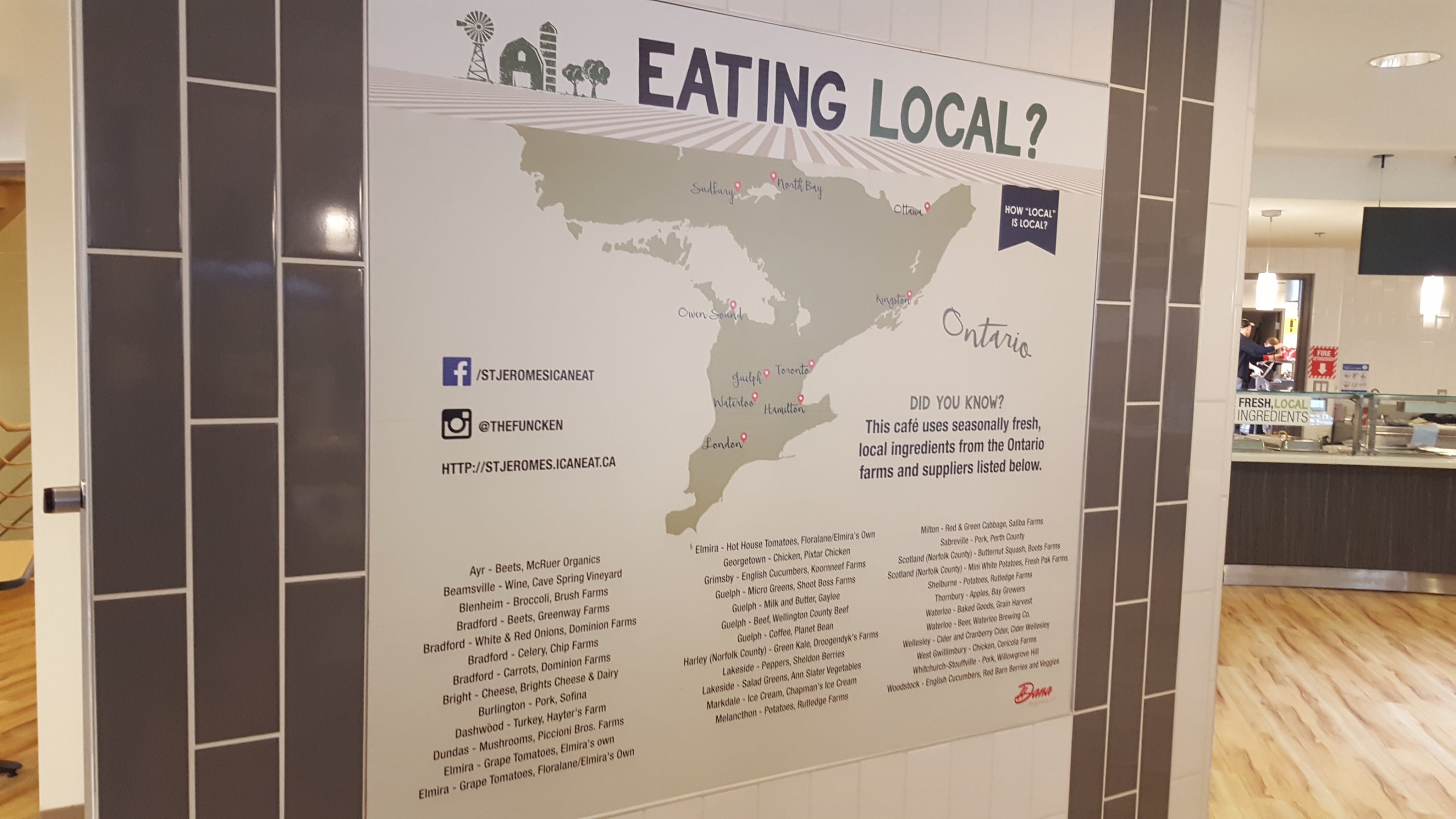
SJU’s food choices
The food at the SJU Cafeteria is unique, local, and homemade! Dietary restrictions are labelled clearly, in which there is always a guaranteed vegan option. The colour coordination enables staff to move students quickly through the line, but also allows them to enjoy a meal that suits their restrictions or preferences!
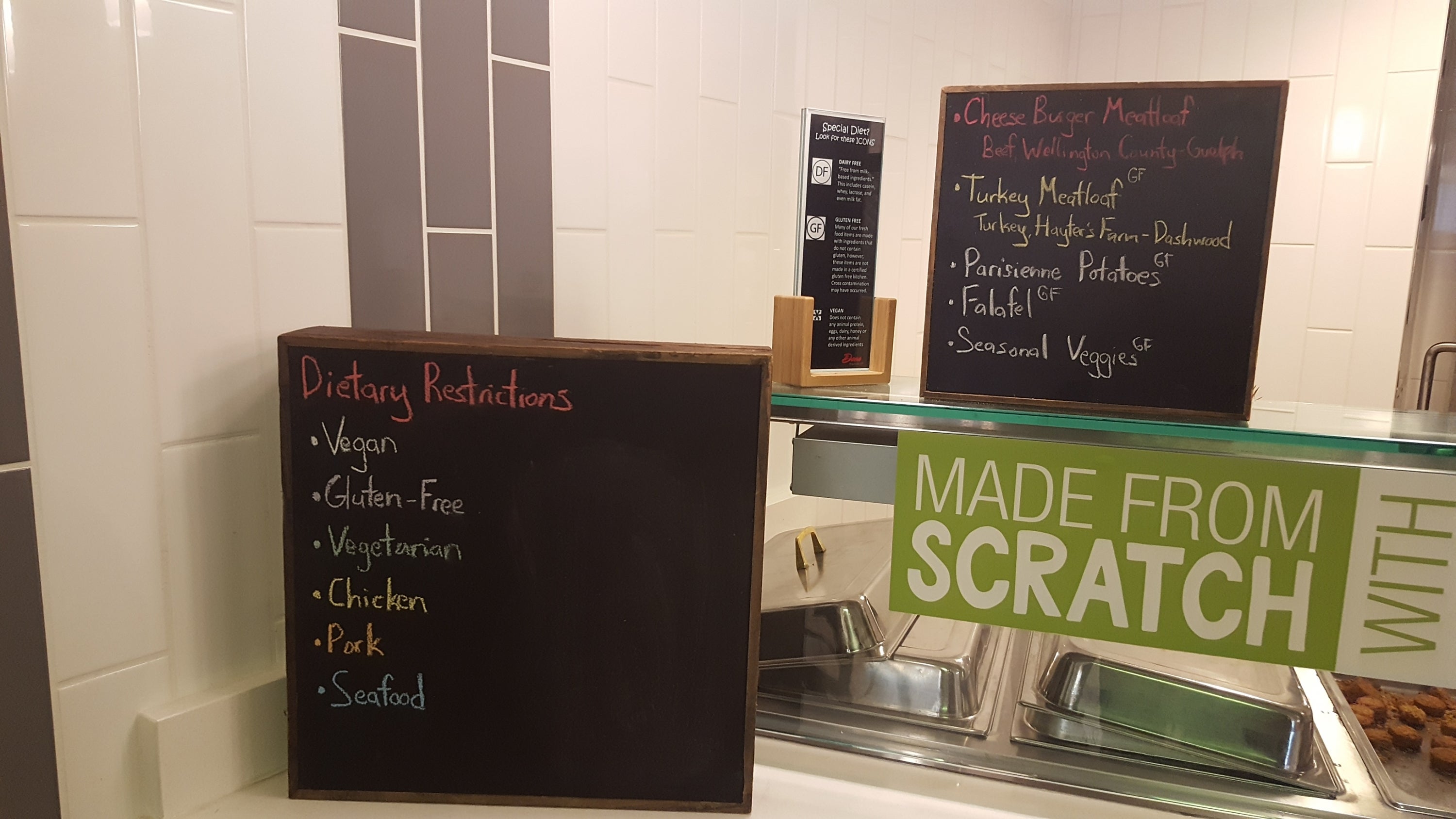
An interesting component of their cafeteria is their salad bar. It has all of the ingredients labelled with the location from where they were sourced, which helps to fulfil their meaning of local food and reinforce their commitment to sustainability.
What's most unique is that their chefs actually made their own pickled veggies, legumes and jam! SJU ensures they give chefs the credit they deserve, and at the end of the day everyone gets to have a tasty meal.
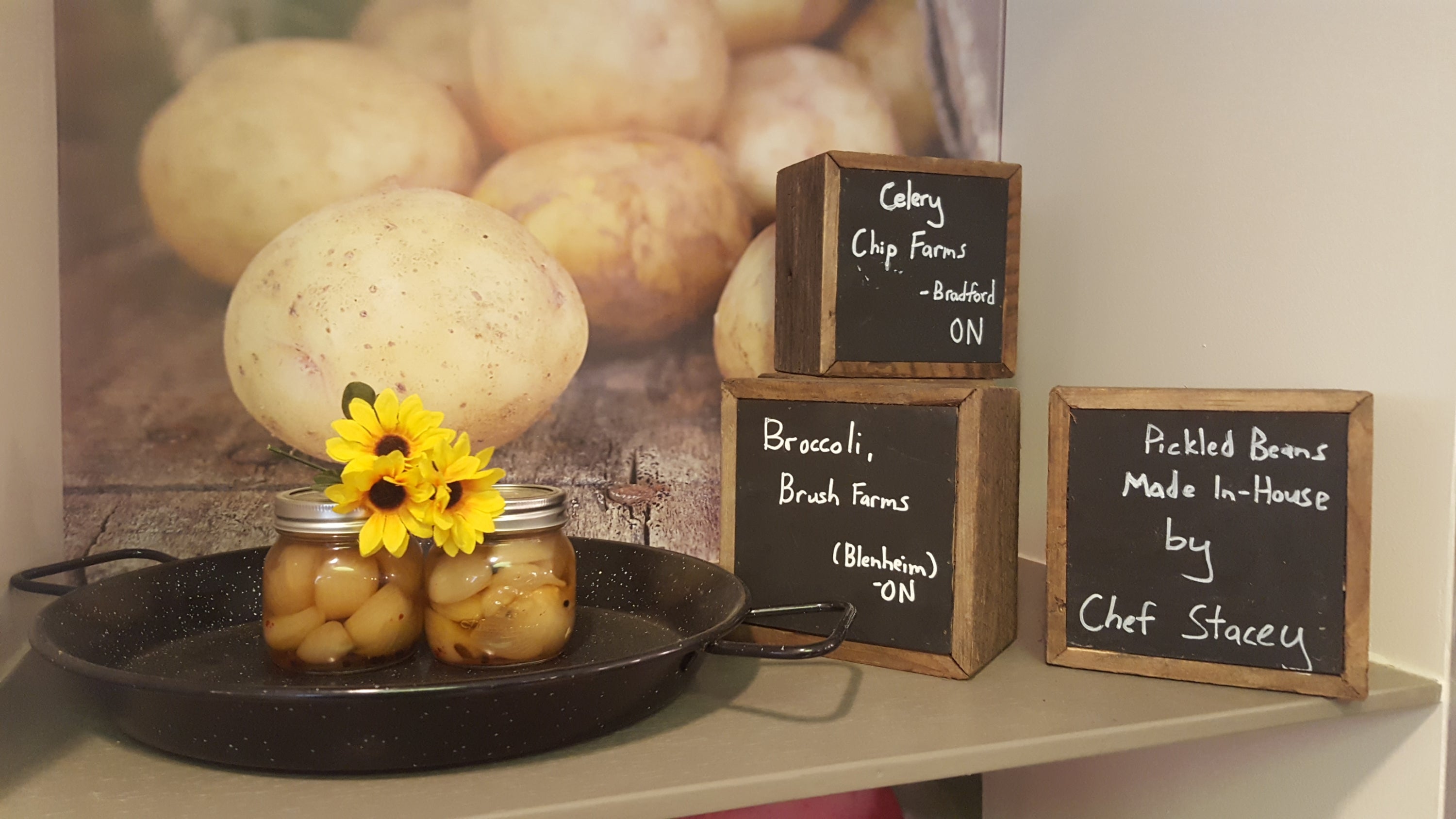
"Dana Hospitality creates delicious and nutritious food. We make our meals from scratch with fresh ingredients, from as local as we can source, every day. We source from only producers, greenhouse growers, and dedicated farmers who meet our quality standards. By sourcing locally, we improve the sustainability of Ontario farmers and minimize our carbon footprint. The food is fresher, tastes better and we support jobs in the local community."
- Kevin McKay, Food Services Director, Dana Hospitality
Funken Café
The Funken Café (formally known as The Atrium) serves drinks including coffee and beer that is either Fair Trade or sourced locally here in Waterloo Region
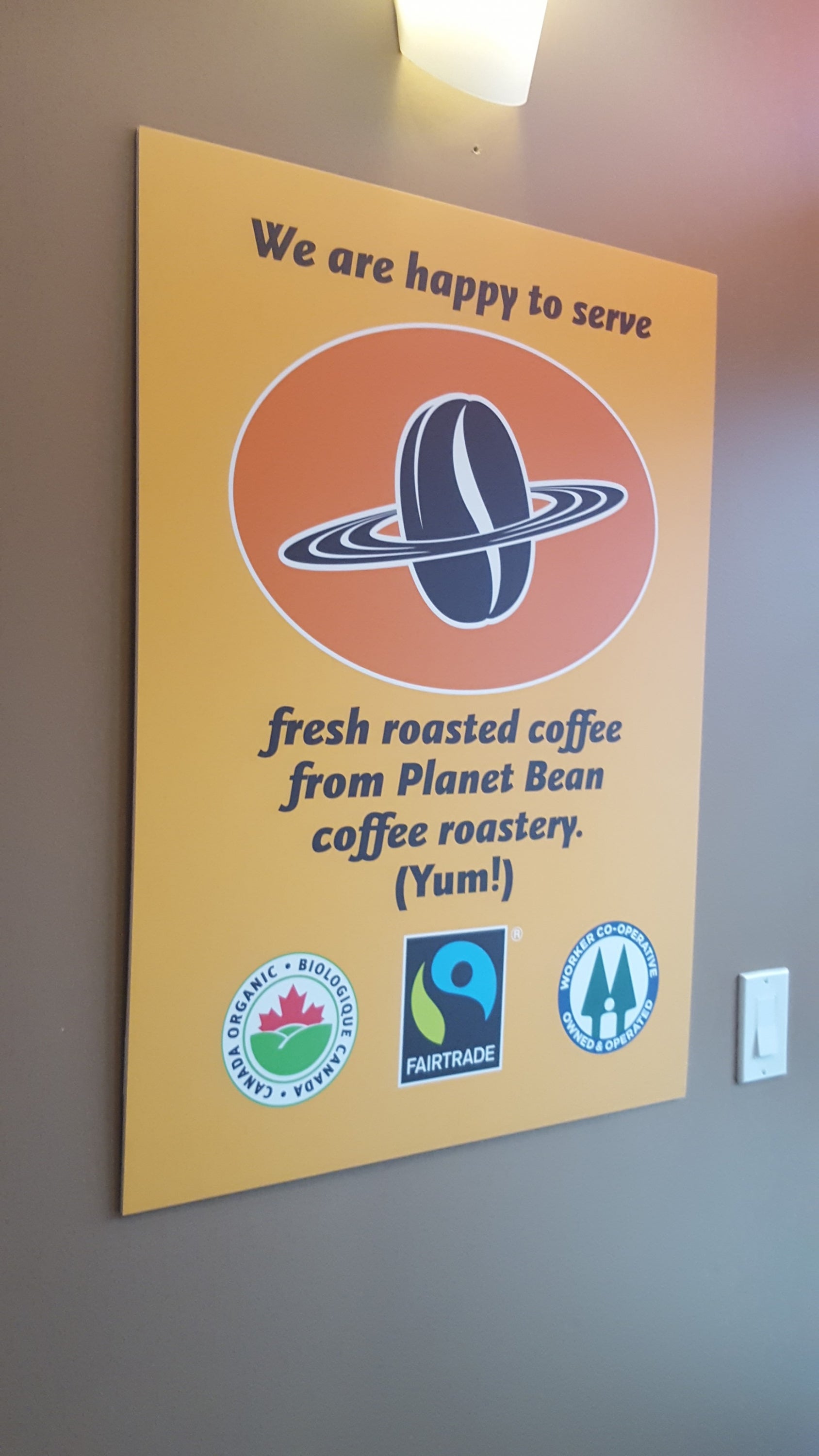
Many times we don't even think to learn about who made our coffee, where it came from or how it even got here. The Funken Cafe provides customers with an excellent reminder of the story behind our coffee.
Marketing makes a difference
Students who come from out of town can recommend
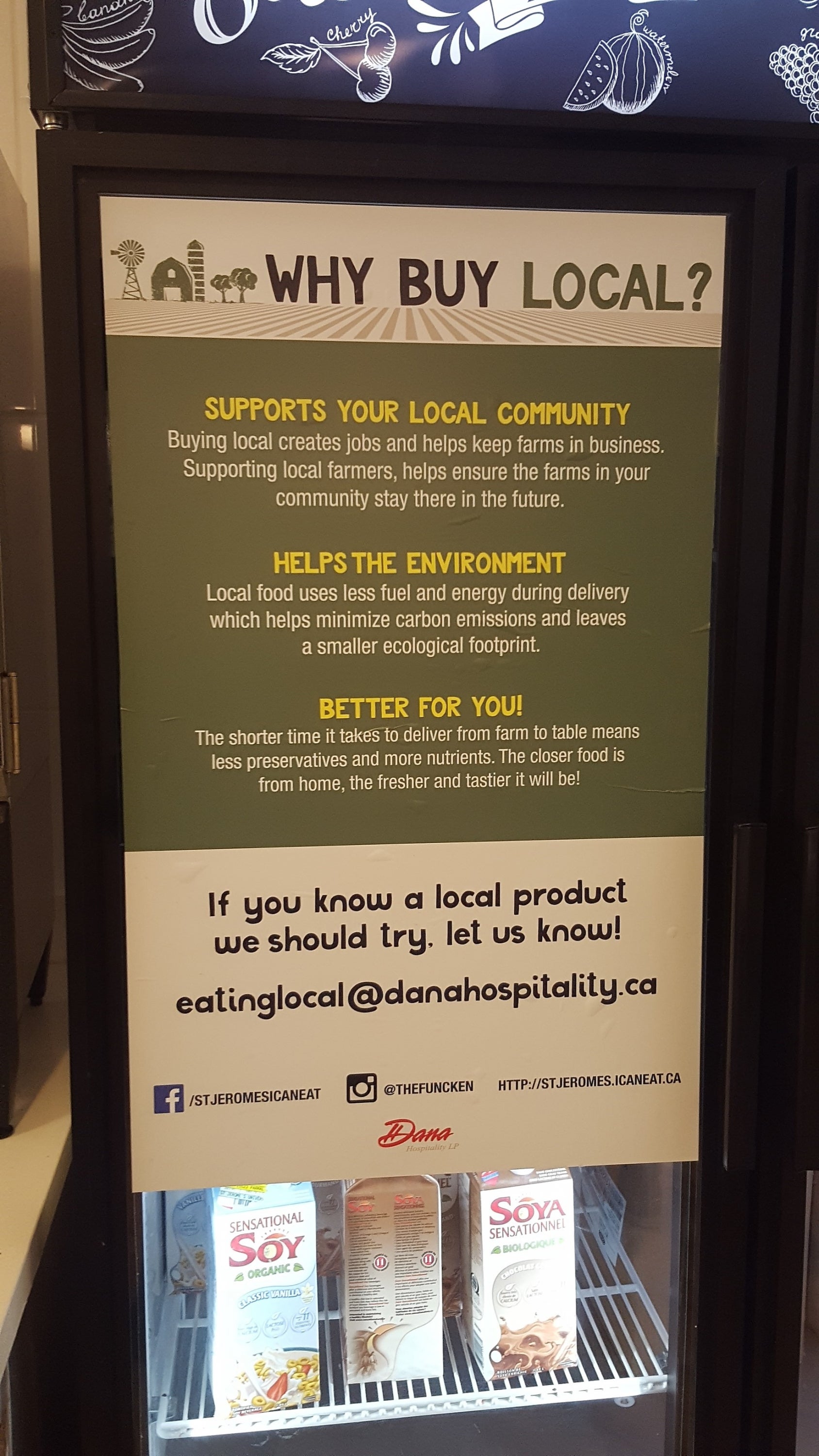
A major difficulty in the push to local or sustainable food is the advertising and marketing appeal of these products. Dana Hospitality at SJU has emphasized that one colour theme, consistent signage, and food transparency goes a long way in their operations from producers to consumers. It also helps that the food SJU serves looks and tastes amazing!
What can you do?
- Educate yourself by reading about food labels and what they mean. Check out the Government of Canada's List of most recognized labels.
- Find what you can afford and determine your preferences – don’t skip out on conventional fruits and veggies if you can’t purchase organic. See the David Suzuki Foundation's List of Dirty Dozen and Clean 15 fruits and veggies.
- Engage with other people in conversation online or at local food festivals and events to put your newly acquired knowledge into practice! A great resource in the Waterloo Region is Foodlink, which tells you when to get certain local foods year-round!
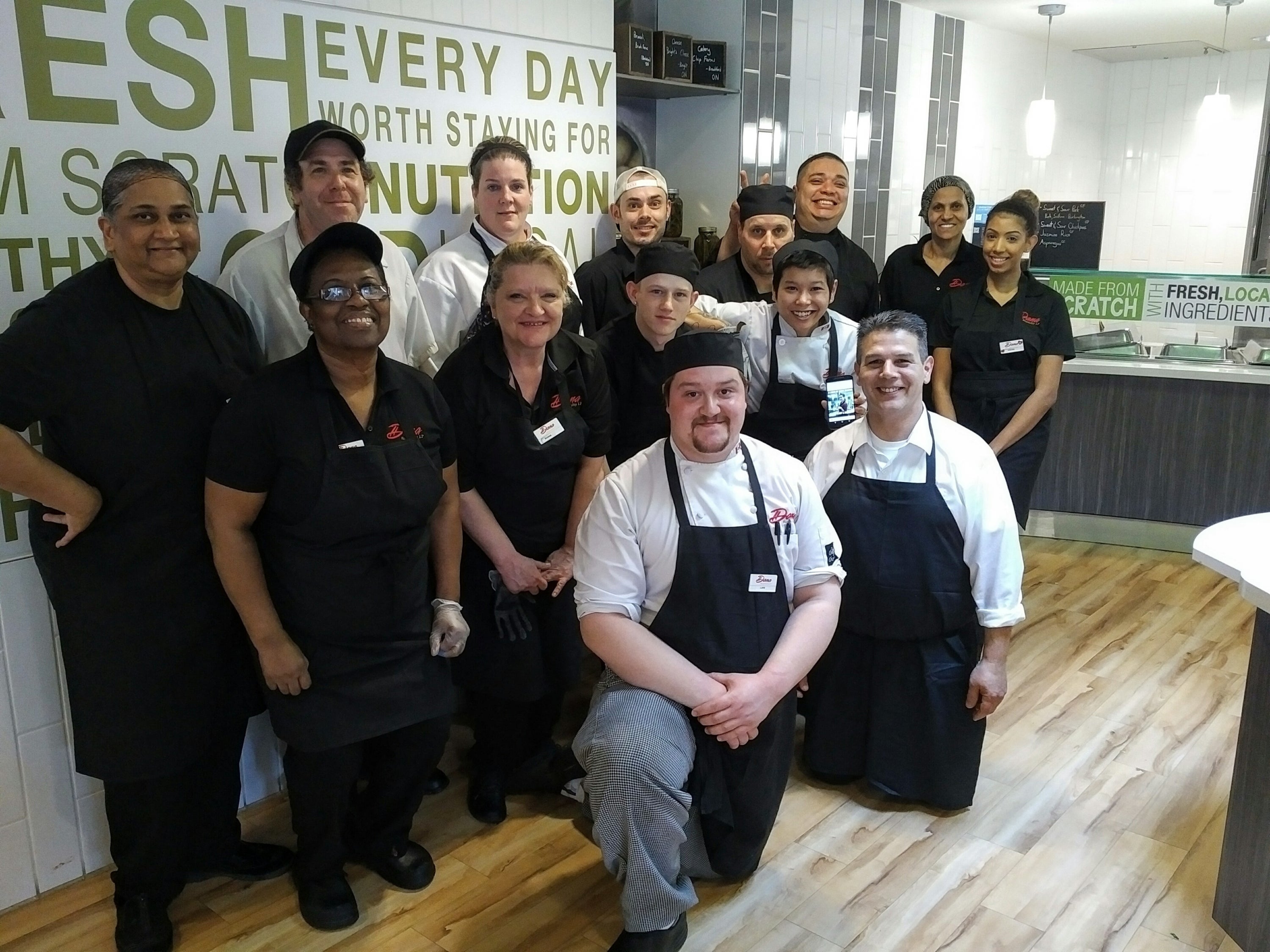
Pictured above is the Dana Hospitality Team at the SJU Cafeteria!
Don’t forget:
- Follow Dana Hospitality at SJU on Twitter @SJU_eats
- Connect with Meatless Mondays on campus on Twitter @Meatless_UW
- Follow @UWaterlooFood to stay up to date on updates to food services on campus!
- Follow the Sustainability Office @WATgreen